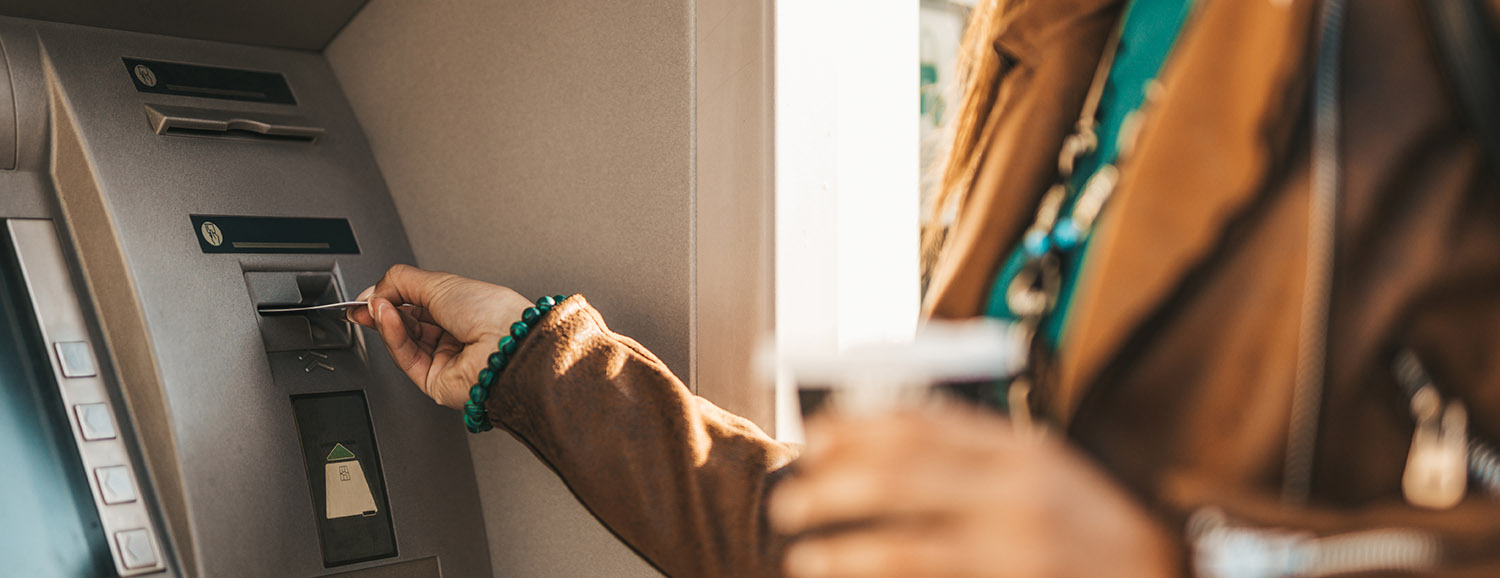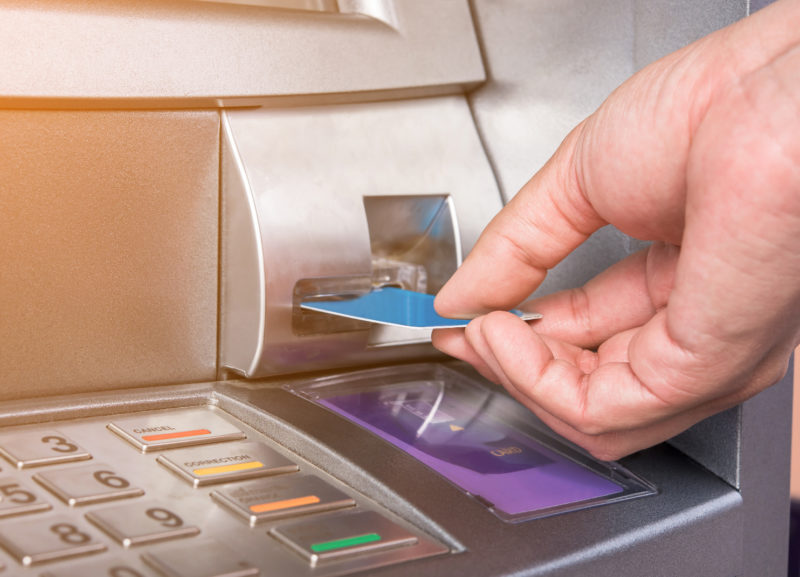

Cashpoints, on the verge of extinction
The banking sector is still in the process of transformation. The closure of branches and the digitalisation of customer relations are creating a new scenario in which cashpoints are gradually losing ground.
If a few years ago the future of over-the-counter customer service was questioned due to the emergence of cashpoints, now it is the turn of the cashpoints themselves. The digital environment provides consumers with virtually full operations via their mobile devices. The only thing they are not allowed to do, for now, is to withdraw cash, but from the point of view of the new digital customer, why do we need cash? Or if we do, do we need cashpoints?
Spain and the cashpoint boom
The first cashpoint in the world appeared in London in 1967, but it was not until 1974 that it arrived in Spain. Specifically in the city of Toledo, promoted by the Banco Popular de Toledo. From then on, all banks incorporated them into their network of branches, which became increasingly widespread throughout the country. As was often said, there was a branch on every corner, and therefore a cash dispenser.
In 2015 Spain was the second country in the European Union with the most cashpoints, with a figure of 1.14 terminals per 1,000 inhabitants. It was only surpassed by Portugal with 1.22. Currently, and far from the 61,714 terminals that were registered in 2008, there is a network of just over 49,000 cashpoints, a number that could be lower if it were not for the fact that other non-bank businesses have begun to provide this type of service.
Cash, on the road to disappearance
The war on cash has been raging for years, and the institutions have already shown their willingness to reduce it gradually but significantly. As in many other matters, the coronavirus crisis has clearly shown our cash-intensive society that another way of relating to money is possible.
To get an idea of the change in mentality that this has brought about in record time, in the last quarter of 2020 alone, POS transactions, i.e. paying merchants directly with a debit or credit card, increased by 16% compared to the same period the previous year. These figures correspond to a study carried out by the Bank of Spain which, among other relevant data, shows that cash withdrawals at cashpoints fell by 26% in the summer of 2020. And so did the volume of amounts to be withdrawn, which fell by 14%.
We no longer find a cashpoint on every corner, we may not even find a branch of our bank in the area where we live, but we do find a POS in every shop. And mobile devices capable of transferring money, managing payments, direct debits and a long etcetera. All this is now a reality and any digital customer has many services that were traditionally “over the counter” at their fingertips, with just a few clicks.
This change in mentality was pointed out by John Shepherd-Barron, the inventor of the first cashpoint, when he predicted that beyond cash, the future of payments would be through mobile phones. In this case, however, he maintained the existence of the cashpoint to carry out other operations, a fact that now, rather than being reaffirmed, is becoming blurred.
The rise of digital customers, future of banking
In the banking sector, as in so many others, the trend is towards the digitalisation of processes and reduction of all those costs now considered unnecessary. For years now, bank branches have been eliminating teller services and reducing office costs. Maintaining them is costly, but eliminating them early can have an even more negative effect.
Digital transformation, both on the part of institutions and customers, is a gradual process that requires a great deal of dedication on the part of the former, as well as adaptation time on the part of customers. There will be no digital evolution if the tools provided are not adequate in terms of agility, usability and security. And this is where all institutions that want to position themselves in the market with a certain competitive advantage will have to invest. The alternative will be to do so when it is already a reality, in reaction to those that are already doing it.
Without going any further, the main Spanish banking institutions have already set, as part of their customer acquisition strategy, priority access to digital customers. Understood as those who, from day one, use the mobile application and self-service as their main means of contact with the bank. Customers, therefore, who represent a very low cost and who are an increasingly attractive part of the market. It is the concept of the customer who buys products, rather than the customer to whom products are sold.
In the year of the pandemic, 2020, BBVA had 7.3 million customers, of which 2.4 million were new digital customers. The entity made a great quantitative leap, exceeding the number of digital customers captured the previous year by 56%. Banco Santander’s goal is to achieve 50% of sales through digital channels, a figure that now stands at 44%. Caixabank, for its part, has 67.6% of digital customers, thus leading the digital banking sector.
Achieving widespread digitalisation
The use of cash is in recession, but is still influenced by the weight it had in the past. With the increasing existence of physical and digital cards, this figure is decreasing year-on-year. Suffice to say, in 2019 only 53% of citizens used cash as their main method of payment. These figures, published by the Bank of Spain, are even more significant if we compare this with 2014, when cash was the preferred option for 80% of the population.
In this process of change, the presence of the banking sector in rural areas around the country remains an open problem. These are populations without branches or cashpoints, where cash is the only means of exchange, but at the same time inaccessible. Banks will be challenged to follow a widespread digitalisation process without leaving anyone behind.
11Onze is the community fintech of Catalonia. Open an account by downloading the super app El Canut for Android or iOS and join the revolution!





Ostres
Gràcies pel teu comentari, Jordi!!!
Amb la targetes digitals mai contesteu amb algun email del vostre bank ni aquí. Hi ha hackers que envien emails dels Banks. Borrar directament. Els Banks no contesten per email hi ha pishing de les targetes digitals. Ojo! Ho he llegit avui. Borrar directament..
Gràcies per compartir aquest avís, Jordi!
El que es segur que els pagaments i les operacions a través entitats bancàries suposa que estat i entitats financeres al menys tinguin el control sobre quelcom bàsic de la teva vida.
L’efectiu és llibertat en front això.
Els ciutadans hem de defensar-nos justament en contra d’aquesta tendència.
Molt d’acord, precisament els neobancs ens han d’ajudar en aquest sentit.
Estic d’acord amb tu, però serà molt difícil anar contra corrent… Et proposo que votis a qui estigui a favor del que tu ens dius, però és molt complicat anar contra l’”establishment”. Moltes gràcies pel teu comentari, Tomàs!!!
Hi ha un banc que ha tancat al poble i a Gelida. LAltre dia vaig comprar castanyes amb un bitllet de 50 per de 20 no hi havia.. un desastre. . És bs
Hola, Jordi, tot va canviant i evolucionant i ens hem d’anar adaptant . Seguim endavant!
Entén i comparteixo tot l’explicat al article. Però crec que la nova Banca i la banca tradicional deixa de banda un sector de població que té un potencial econòmic MOLT importat… la gent gran que no s’aclareix amb els caixer i ja no parlem de la banca online.
Per cert desitjo que la xarxa de partners sigui una realitat el més aviat possible.
Hola, Jaume nosaltres també esperem que sigui aviat. Tota la informació estarà publicada a la Plaça. Seguim endavant!
No deixaren d’existir, fins que es pagui el 100% en virtual.
Mentre tant, algun caixer estrategic i sera.
És de suposar que serà així i que tot s’anirà fent gradualment. Moltes gràcies pel teu comentari, Xavier!!!
Fa molt de temps que només faig pagament electrònic i el poc efectiu que necesito el retiro al efectuar una compra en establiments determinats. Tant sols cal preveure els sistemes de pagament que hauràs d’emprar allà on vagis. Gràcies.
Gràcies per la teva reflexió, Pere!
Ok
Els caixers en zones rurals són un problema que crec que a banda de la política dels bancs, hauria d’implicar al Govern ja que els pensionistes, aturats i molts treballadors se’ls exigeix per cobrar un compte bancari i després no poden disposar de l’efectiu molts cops imprescindible
Hi coincideixo del tot, Francesc.
En aquest sentit, a 11Onze estem treballant per consolidar una xarxa de partners que permetran als nostres clients retirar efectiu de comerços que tenen més implantació al territori, com ara, benzineres o supermercats, per exemple. Esperem que això també sigui una bona alternativa a aquesta mancança de caixers bancaris a zones rurals.
No fa gaire, en va passar que no tenia efectiu i el kiosker em va dir que només cobrava en efectiu. Em vaig quedar sense diari.
Sí, Jordi, encara no s’ha superat el fet que hi ha negocis que no tenen TPV, o bé, que imposen un import mínim per usar-lo, per tal de cobrir la despesa que els suposa.
Casi ja no utilitzo l’efectiu.
Està clar q l’efectiu té els dies comptats. És la manera tb d’evitar el frau fiscal.
Exacte tot va canviant i evolucionant Manel ! Seguim endavant
Suposo que a la llarga es tracta de tindré tot els diners ben controlats per els governs i reduí al màxim el diner negre, aquell que s’escapa de la fiscalitat d hicenda .
Exacestic amb tu no unucament s’aconseguira te
genial!
Gràcies, Manel, ens veiem per La Plaça
Gràcies, Joan! Ens veiem per La Plaça!
A poc a poc i el diner de paper fora
Gràcies pel teu comentari J. Carles, aquesta sembla ser la tendència, cada vegada s’utilitza menys els diners de paper. Benvingut a la Plaça!
Es cert que cada cop més, i el COVIDho ha accelerat, s’utilutza poc els diners però cal anar en compte en no deixar fora persones amb dificultats per utilitzar el mon digital perquè fora fàcil caure en l’exclusió digital per raons de dificultat o d’accés
Gràcies pel teu comentari Alícia. Per això cal fer-ho de manera senzilla, perquè tothom hi tingui accés
La desaparició del diner físic la veig lluny, penseu que hi ha mercats (evidentment no molt legals) que treballen només amb diner físic. I en aquests mercats hi ha gent força influent per no dir molt. Però tant de bo aquest mercat pugui desaparèixer
Correcte Ester, els diners físic, encara s’utilitza i molt. Sí que és cert que la tendència indica una desaparició futura d’aquests. Estarem atents a com evolucionen els mercats.
I jo diria que fins i tot el diner físic
Gràcies pel teu comentari, Joan. Seguim!
Penso que l’extinció de l’efectiu pot tenir efectes secundaris indesitjats que cal ponderar bé abans de fer el pas definitiu. No és, avui en dia, una mesura integradora. Obliga a tothom a disposar de mitjans de pagament (mòbils i targetes) als que la franja més pobra de la població sovint no té accés…
Gràcies per la teva opinió, Miquel. Passi el que passi amb l’efectiu, 11Onze serà al costat de la gent sempre.
Molt cert, però la transició s’haurà de fer mica en mica. La majoria de les persones que tenen entre 75 i 100 anys tenen moltes dificultats en l’entorn digital, i això no vol pas dir que no es pugui anar avançant en aquesta línia, però encara ens falta una mica… El tema de gaudir d’un internet gratuït…, doncs no se pas si serà possible. Desaparició del diner negre? Probablement, però la pregunta és… Com sobreviuran les persones que no tenen ingressos en blanc? La societat haurà d’evolucionar obligatòriament cap a una total integració de les persones en l’àmbit en el qual viuen. La societat del segle XXI ha de ser per les persones i amb tothom ben integrat a la mateixa…
Hola Jordi tens tota la raó quan esmentes la gent gran. Gent gran que treu cales dels caixers amb algú que els ajuda, ja siguin familiars, amics o veïns. Ja no parlem de smartphones o ordinadors i que necessiten que li expliquin les coses perquè el seu nivell de comprensió amb aquestes edats no es el nostre. Estaria bé comptar amb la gent gran i que digitalització no els deixi de costat.
Dos peits comentaros al respecte, un es que certamen el futur serà sense efectiu, i digitalitzat, però haurem d’ensenyar com fer-ho servir i facilitar que tothom i tingui accès a les xarxes, i fins que no sigui Internet gratuït, sera dificil si més no a un curt termini. I l’altre comentari que volia fer es que si s’arriva a conseguir la total digitalització per fer qualsevol transacció, per fí el diner dit negre o “B” no existiria. Salut
Molt cert!! Carles! Internet ha nascut per ser lliure! i nosaltres també!